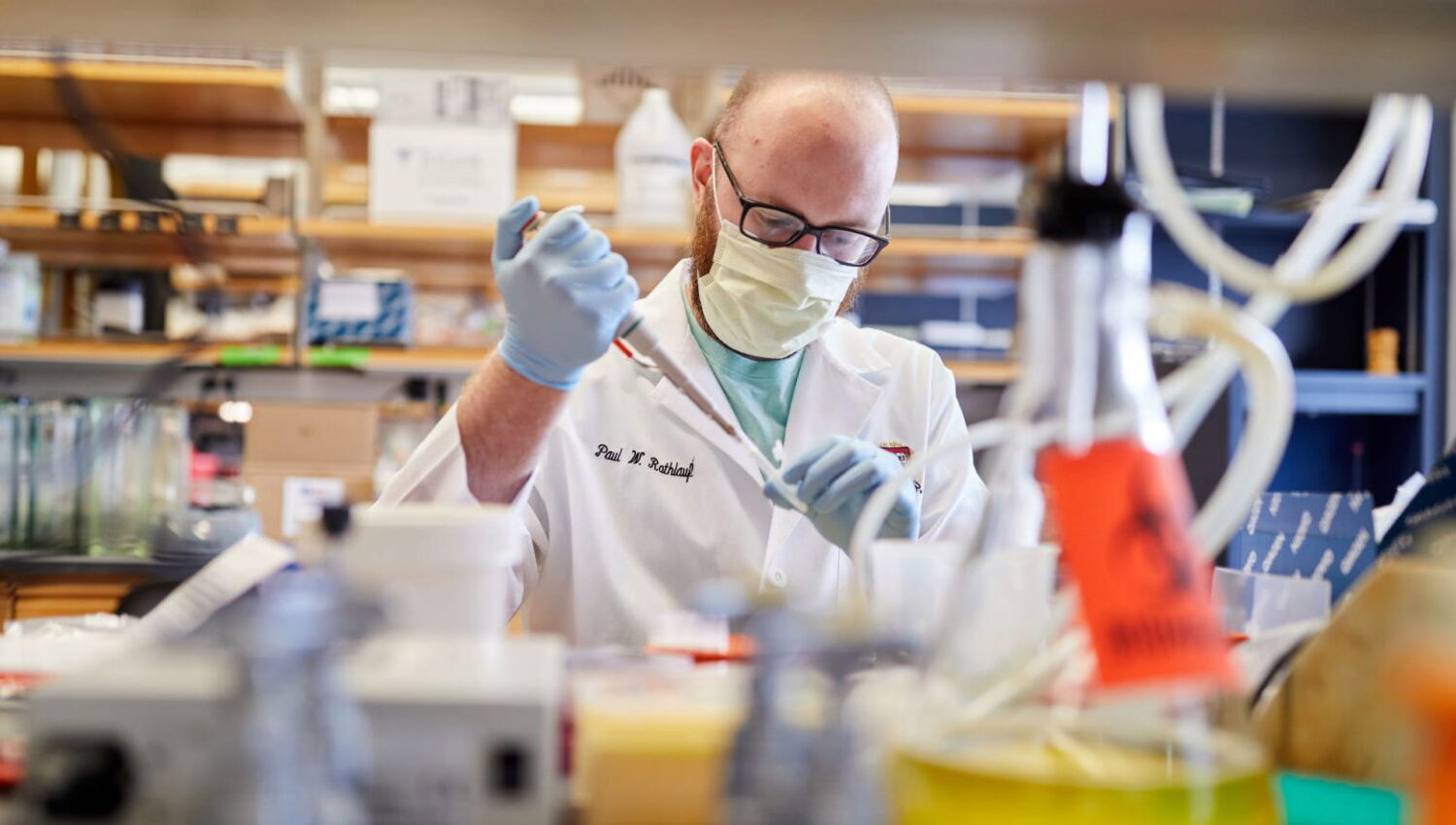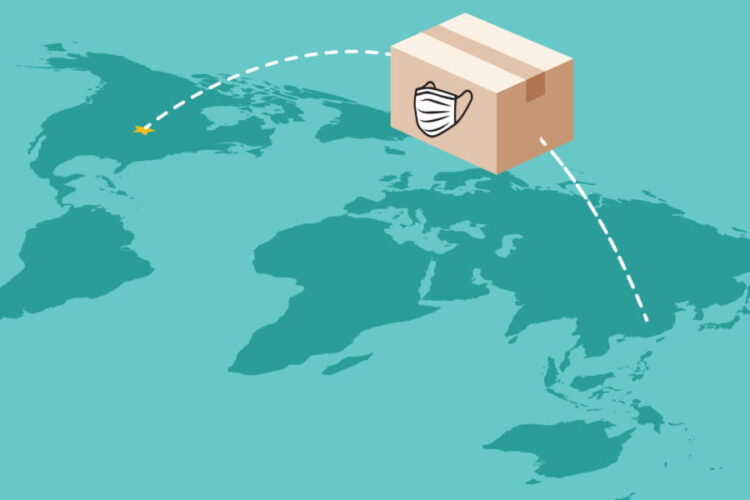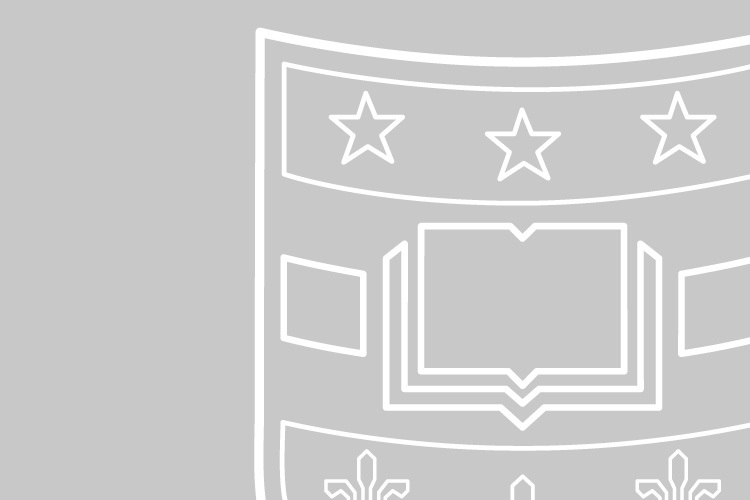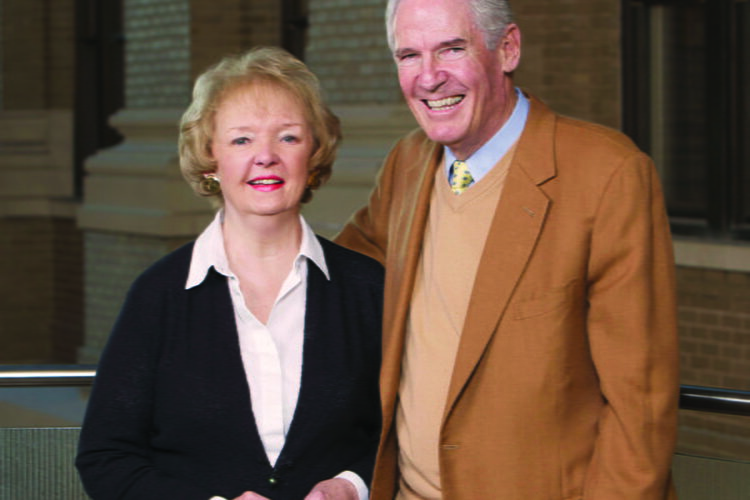Coronavirus Research Task Force Members
Andrew Bursky, AB ’78, BS ’78, MS ’78*
Sam Fox, BSBA ’51*
David Kemper*
James McDonnell III*
John McDonnell, DSc ’06, MBA ’14*
Jim McKelvey, AB ’87, BS ’87*
Philip Needleman*
Michael Neidorff*
Andrew Newman*
Mike Powell
Rodger Riney
Jim Weddle, MBA ’77
Jess Yawitz, AB ’68, MA ’69, PhD ’72*
*Donors
When reports of a mysterious new respiratory illness resembling viral pneumonia emerged in China in late December, infectious disease physicians and researchers at Washington University School of Medicine went on alert. Within a few weeks—after Chinese officials revealed the disease, dubbed COVID-19, was caused by a novel coronavirus—they began looking for ways to treat it and reduce its spread.
By the time the outbreak forced the university to shut down nonessential on-campus operations in mid-March, including slowing or stopping most laboratory activity, School of Medicine investigators mounting a coordinated response to COVID-19 were ramping up their research efforts. Their ability to move forward swiftly depended on the availability of funding to execute their plans. The pipeline of federal grant support for coronavirus research, however, was not fully flowing yet.
“The speed of this response reflects these leaders’ deep commitment to the School of Medicine and the university,” says David H. Perlmutter, MD, executive vice chancellor for medical affairs and the George and Carol Bauer Dean of the School of Medicine. “Their generosity and confidence in our capacity to advance countermeasures against a serious infectious threat gave us a critical boost. Few academic medical centers in the country can count on such enthusiastic support.”
Marshaling Resources and Expertise
Plans to establish the task force were initiated by Dean Perlmutter and Chancellor Andrew D. Martin. With assistance from several members of Washington University’s Board of Trustees, they recruited participants from the ranks of the trustees and the School of Medicine National Council as well as other civic leaders.
“It sounded like a great idea to me in terms of helping the medical school marshal its considerable research expertise to address such a critical issue,” says task force member John McDonnell, DSc ’06, MBA ’14. “I was happy to join.”
The task force came together with a common set of assumptions: first, that the scope of the crisis would require multiple approaches. And second, that Washington University could deliver solutions that would help save lives and mitigate economic damage in the St. Louis region, along with some that could be exported for broader benefit.
During the self-described cabal’s initial meeting, Dr. Perlmutter requested funding to accelerate research in four key areas based on the strengths of basic and clinical investigators at the School of Medicine:
- Creating animal models to aid in studying the coronavirus and testing new vaccines and treatments.
- Producing vaccine approaches with demonstrated efficacy.
- Developing diagnostic tests to assist with the implementation of public health measures.
- Enhancing capacity to perform COVID-19 clinical trials.
During subsequent virtual meetings, task force members received updates on developments related to these priorities. In early July, Dr. Perlmutter reported that medical school investigators had submitted more than 150 grants for coronavirus research and received $16 million in first-year funding, with many applications still pending.
“I would venture to say that this is an incredible return on your investment,” the dean told the group during the July 6 meeting. “Your generosity has allowed us to make breathtaking progress.”
Achieving Remarkable Results
Funding allocated to faculty researchers through gifts from task force members has helped bring about important breakthroughs. One of the first was the development of a mouse model for COVID-19 that replicates the human illness. Because mice are not naturally susceptible to infection from the coronavirus, the global research community’s ability to study the virus in animals has been limited. Other scientists can easily adopt the WashU team’s approach to accelerate the testing of experimental treatments and preventives.
“Given the dynamic leadership of Dean Perlmutter and others at the university, I wasn’t surprised that the medical school could pivot and make such tremendous advances so quickly. But I certainly have been impressed.”
Emeritus Trustee John McDonnell, DSc ’06, MBA ’14
Other work supported by task force members has led to the creation of novel vaccine candidates that show great promise for preventing infection; the identification of therapeutic antibodies that could neutralize the virus; and the development of a hybrid virus that mimics the effects of the coronavirus but presents no infection risk to humans. The surrogate virus, which can be handled under ordinary laboratory safety conditions, already has been distributed to scientists around the world to facilitate COVID-19 research.
In addition, researchers at the School of Medicine were tapped to participate in the national effort to conduct clinical trials evaluating vaccines through the COVID-19 Prevention Network organized by the National Institute of Allergy and Infectious Diseases. The large-scale trials will enroll thousands of participants in the St. Louis area.
“Given the dynamic leadership of Dean Perlmutter and others at the university, I wasn’t surprised that the medical school could pivot and make such tremendous advances so quickly,” Mr. McDonnell says. “But I certainly have been impressed.”
Chancellor Martin says the efforts of medical school researchers represent a continuation of the Washington University story. “This is what we do. When presented with a problem of global magnitude, we focus our intellectual and scientific attention on it and are able to achieve remarkable results that have an impact in St. Louis and beyond.”
Benefiting St. Louis and the World
In July, members of the task force provided more than $1.5 million in additional gifts and pledges to push the development of a highly sensitive COVID-19 saliva test closer to the finish line. Plans call for the test to be deployed on the Washington University campus and, eventually, throughout the region.
The stakes are high: Increased testing capacity will aid efforts to control the spread of COVID-19 so the university and area businesses can safely continue returning to normal operations. Similarly, the success of the medical school’s other COVID-19 research endeavors will benefit WashU, the St. Louis community, and the world.
“I am extremely grateful for faculty and staff members who have been working tirelessly to fight this terrible pandemic,” Dr. Perlmutter says. “I don’t think they come up for air. I also deeply appreciate the donors and task force members who have bolstered their work. Their investment will continue to pay dividends far into the future.”
Contact us to learn more about supporting COVID-19 research at Washington University School of Medicine.



